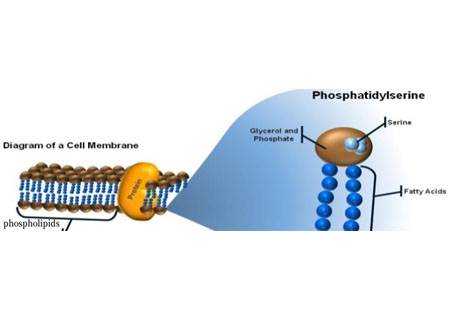In modern health research, glutathione (GSH) is considered an important biomarker for measuring human health status. As a tripeptide compound naturally present in cells, it plays a core role in anti-oxidation, defense against free radicals, detoxification and immune system regulation. In recent years, more and more studies have shown that the level of glutathione can directly reflect the health of the body. Therefore, it is widely used in medical research, nutrition and health care, anti-aging and chronic disease management.
What is glutathione?
Glutathione is a tripeptide molecule composed of glutamic acid, cysteine and glycine. It is widely present in human cells, especially in the liver and immune cells. As the most important endogenous antioxidant in the body, it can neutralize free radicals and prevent cell damage, while participating in many important metabolic processes such as detoxification, DNA repair and protein synthesis. Due to its powerful biological functions, glutathione has become an important indicator for health assessment.
Why is glutathione considered a biomarker of health?
Antioxidant and Cell Protection
Glutathione is the main antioxidant in cells, which can effectively reduce oxidative stress and protect cells from free radical damage. Oxidative stress is a key factor in aging, chronic diseases (such as cardiovascular disease, diabetes, cancer) and neurodegenerative diseases (such as Alzheimer's disease and Parkinson's disease). Therefore, a decrease in glutathione levels in the human body may mean a decline in health.
Detoxification and Liver Health
Glutathione plays an important detoxification role in the liver, binding and neutralizing toxins, heavy metals and pollutants in the body and promoting their excretion. Studies have shown that individuals with higher glutathione levels generally have healthier liver function, while people with liver diseases (such as fatty liver, hepatitis, cirrhosis) often have lower glutathione levels. Therefore, glutathione is widely used to assess liver health.
Immune System Support
The immune system relies on glutathione to maintain function. Glutathione helps regulate the activity of T cells and B cells, enhances immune defenses, and helps the body fight infection and disease. Studies have found that people with weak immune function usually have lower glutathione levels, and supplementing glutathione may help improve immunity.
Anti-aging and longevity
Aging is closely related to oxidative damage, and glutathione, as one of the most powerful antioxidants in the human body, is considered an important factor in delaying aging. Studies have shown that the glutathione levels of centenarians are generally higher than those of the general population, which also shows that glutathione levels may be related to life expectancy and healthy aging.
Neurological health and cognitive function
Glutathione in the nervous system is essential for brain health and cognitive function. Studies have shown that patients with Alzheimer's and Parkinson's disease have lower glutathione levels, and supplementing glutathione may help reduce neuroinflammation, enhance brain cell survival, and reduce the risk of neurodegenerative diseases. Therefore, glutathione is considered an important biomarker for neurological health.
Application market and prospects of glutathione
As people pay more attention to health, the application of glutathione in multiple industries is growing rapidly, especially in functional foods, nutritional supplements, beauty and skin care products, pharmaceutical industries and other fields, and the market demand is expanding.
Functional foods and dietary supplements: Glutathione is added to many health products to enhance immunity, improve liver function, and anti-aging.
Pharmaceutical industry: Glutathione has received widespread attention from the medical community as an auxiliary treatment ingredient for diseases such as liver disease, Parkinson's disease, and Alzheimer's disease.
Beauty and skin care industry: Glutathione has become a popular ingredient in the global skin care market due to its whitening and antioxidant properties. It is used in whitening oral tablets, anti-aging skin care products, etc.
Why choose Witspower's glutathione?
Witspower focuses on the research and production of high-quality cognitive health ingredients, including L-Glutathione Reduced. Our products use strict production processes to ensure high purity and strong activity, and are suitable for the formulation development of various health products.
Our advantages include:
High purity and high activity: Advanced production processes are used to ensure the biological activity and stability of glutathione.
Strict quality control: In line with international standards, all products are strictly tested to ensure safety and reliability.
Wide range of application scenarios: can be applied to nutritional supplements, health foods, functional beverages, skin care products, pharmaceutical industry, etc.
R&D support and customized services: customized solutions can be provided according to different product requirements to help brands develop high-end health products.
Conclusion
As an important biomarker for measuring human health, glutathione plays an irreplaceable role in anti-oxidation, immune regulation, liver health, neuroprotection and anti-aging. With the increase of global health awareness, the demand for glutathione in various health products continues to grow.
Witspower is committed to providing high-quality glutathione to help the development of the health industry. If you are looking for a reliable raw material supplier, please contact us to learn more about L-glutathione reduced form to give your products an advantage in the market competition.




